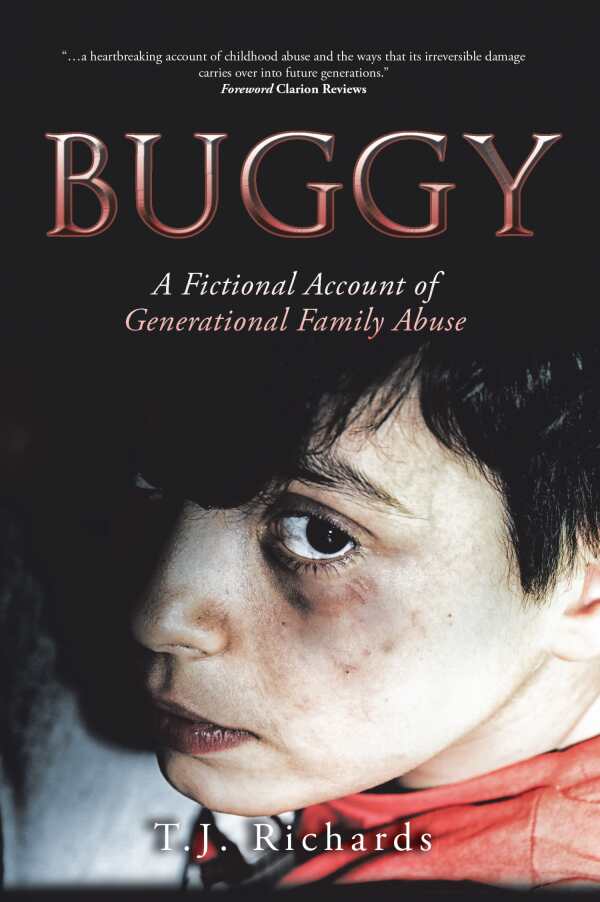Buggy
A Fictional Account of Generational Family Abuse
Buggy is a heartbreaking account of childhood abuse and the ways that its irreversible damage carries over into future generations.
Timothy J. Richards’s novella Buggy draws from real-life events to show the effects of childhood abuse.
This generational story is centered around two father-son relationships. One focuses on Tony, who is visiting his reproachful father, Louie, in the critical care unit. Louie has been diagnosed with terminal lung cancer; his son is the only person who has come to visit him, though tension between the two is evident.
Tony attempts to make a connection with his dying father by asking him how he met Tony’s mother, who divorced him due to his abusive tendencies. However, Louie is hesitant to open up. Their conversation is interrupted twice when Louie succumbs to his drugs. He dreams about two separate times when he was a child and his father was emotionally and physically abusive, including a difficult scene in which his father, drunk and in a rage, beats him. When he emerges from his dream, there is a shift in Louie’s behavior, and he attempts to restore his relationship with his son.
The story successfully delves into the results of destructive relationships between a father and son, demonstrating the effects over the course of two generations. Tony is clearly resentful of his father’s behavior but tries to find any redeeming quality in him by asking about happier times.
Louie seems unable to control his temper; he lashes out at his ex-wife and Tony. These awkward interactions subtly shed light on their unhealthy relationship; there are no direct examples from their shared past, though there are hints of continued abuse. Louie’s flashbacks to his childhood are more obvious illustrations of a father purposefully causing harm to his son.
Scenes come to life thanks to impressive imagery. Intricate attention is paid to settings. Suspense and intrigue follow from quietly tense scenes, as when Louie opens a present in which each box opens into another. There is an ever-present sense of danger; something bad could happen at any moment. Minute details, from dialects to mannerisms, bring characters to life.
The text contains a few spelling and punctuation errors, but writing is generally strong. Breaks into Louie’s past interrupt the story but do not disrupt its pace. The ending is left open to interpretation.
Buggy is a heartbreaking account of childhood abuse and the ways that its irreversible damage carries over into future generations.
Reviewed by
Emily Kubal
Disclosure: This article is not an endorsement, but a review. The publisher of this book provided free copies of the book and paid a small fee to have their book reviewed by a professional reviewer. Foreword Reviews and Clarion Reviews make no guarantee that the publisher will receive a positive review. Foreword Magazine, Inc. is disclosing this in accordance with the Federal Trade Commission’s 16 CFR, Part 255.

